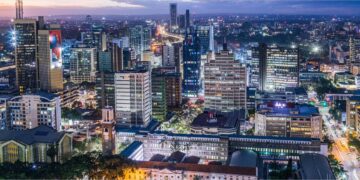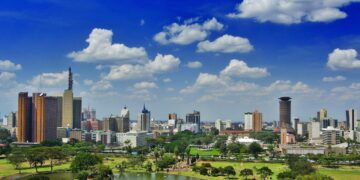In a significant diplomatic advancement, Sudan has recalled its ambassador from Kenya following reports of a meeting held in Nairobi that aimed to establish a “parallel government” for the war-torn nation.This move underscores escalating tensions between Sudan and its regional neighbor amidst ongoing turmoil and political instability within Sudan itself. The meeting, which reportedly involved key opposition figures and international stakeholders, has drawn sharp criticism from the Sudanese government, raising concerns about foreign influence and the fractious political landscape in the country. As Sudan grapples with internal divisions and deteriorating conditions, the implications of this recall may reverberate through both nations and potentially alter regional dynamics in East Africa.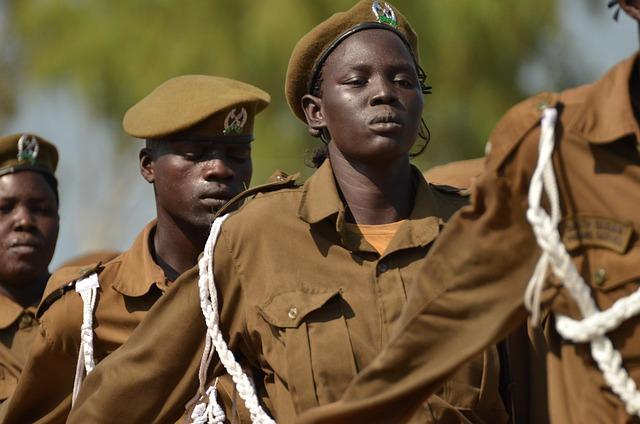
Sudan’s Diplomatic Maneuver: Recalling the Ambassador from Kenya
In a significant diplomatic shift, Sudan has taken the step of recalling its ambassador from Kenya in response to a recent meeting aimed at forming a ‘parallel government’. this move underscores Khartoum’s serious objections to the discussions that included key figures from opposition groups, perceived as undermining the current administration. The Sudanese government views these actions as an attempt to destabilize its authority and promote an agenda contrary to national interests.
The recalled ambassador, who had been stationed in Nairobi, played a crucial role in maintaining Sudan-Kenya relations, which have historically been marked by cooperation on various fronts. Though,Sudan’s decision signals a growing concern over external influences complicating its path to stability. Key points of Sudan’s stance include:
- Reaffirming sovereignty: Sudan insists on the integrity of its political process without foreign intervention.
- Condemnation of opposition coalitions: The government views the formation of a parallel structure as a direct challenge to its legitimacy.
- Request for diplomatic support: Sudan calls for regional and international actors to respect its political sovereignty.

Understanding the Implications of a Parallel Government in Sudan
The emergence of a parallel government in Sudan, especially following the recent meeting in Kenya, raises critical questions regarding the stability and future governance of the country. The recall of Sudan’s ambassador underscores the nation’s serious concerns about sovereignty and foreign interference in domestic matters. A parallel government could potentially lead to a fragmented state, further complicating an already volatile political landscape and posing risks not only to internal order but also to regional stability. The implications may include increased tensions between existing governmental forces and newly formed factions, shaping a contentious power struggle.
Potential consequences of a parallel government in Sudan could manifest in various forms, such as:
- Increased Political Instability: clashing ideologies and loyalties could exacerbate divisions.
- Humanitarian Crises: Ongoing conflicts may lead to further displacement and suffering for Sudan’s population.
- Economic Decline: Uncertainty in governance can deter foreign investment and hinder economic recovery.
Should this alternative governance structure solidify, it may necessitate an international response, from sanctions to diplomatic negotiations, in a bid to restore order and address the root causes of the unrest.
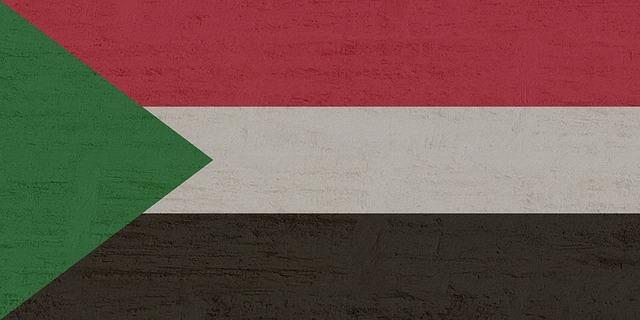
regional Reactions: How neighboring Countries View the Crisis
The diplomatic rift following Sudan’s decision to recall its ambassador from Kenya has sparked varied responses across the East African region. Uganda expressed concerns over the impact of the crisis on stability within its borders, emphasizing the need for regional dialog to mediate tensions. Officials stated, “Instability in Sudan can have a domino effect,” urging for collaboration among East African nations to address the underlying issues. On the other hand, Ethiopia, while maintaining a neutral stance, has called for caution, highlighting the importance of the African Union in overseeing any movements toward conflict resolution.
Simultaneously occurring, Tanzania and Rwanda have taken a proactive approach by proposing a summit to discuss the broader implications of the Sudanese situation.Both nations advocate for a concerted effort to uphold regional unity and collective security. In response to Sudan’s actions, a cautious coalition of nations is emerging, focusing on humanitarian concerns and economic stability, mindful of the past ties many neighboring countries have with Sudan. The divergent perspectives showcase a blend of concern,caution,and proactivity among the East African states as they navigate this complex unfolding crisis.

The Role of International Organizations in Sudan’s Political Landscape
As Sudan grapples with political instability, the involvement of international organizations has become increasingly significant. These entities provide diplomatic channels that facilitate dialogue among conflicting parties and aim to promote dialogue. Through initiatives like peacekeeping missions, aid provisions, and policy recommendations, international organizations can play a pivotal role in fostering an surroundings conducive to negotiation and reconciliation.Their efforts can help mitigate tensions, especially in moments of heightened conflict, by presenting frameworks for governance that are inclusive and representative of diverse societal interests.
The dynamics of Sudan’s political landscape are complex, and the actions of international organizations frequently enough substantially influence local power structures.Recent events, including the government’s reaction to the proposed creation of a parallel government, highlight the delicate balance that these organizations must navigate. Key roles include:
- Monitoring human rights violations
- Facilitating humanitarian assistance
- Encouraging democratic governance
- Providing technical support for electoral processes

Recommendations for Diplomacy: Bridging Gaps between Sudan and kenya
To enhance diplomatic relations between Sudan and Kenya, it is crucial to adopt a multi-faceted approach that focuses on dialogue, mutual understanding, and collaborative efforts.The following recommendations aim to bridge the existing gaps and foster a more harmonious relationship:
- Initiate High-Level Dialogue: Organize direct talks between the leaders of both countries to address misunderstandings and outline a path towards cooperation.
- Establish Joint Committees: Form bilateral committees that include representatives from both governments to discuss pertinent issues such as trade, security, and regional stability.
- Cultural Exchange Programs: Promote programs that facilitate cultural exchanges to enhance mutual understanding and cooperation between the citizens of both nations.
- Involve Regional Organizations: Engage regional entities like the Intergovernmental Authority on Development (IGAD) to mediate discussions and provide support for conflict resolution.
Moreover, proactive measures should be implemented to prevent future diplomatic tensions. fostering goodwill through economic cooperation and infrastructure development can serve as a deterrent against possible conflicts. A proposed framework might include:
| Area of Cooperation | Proposed Actions |
|---|---|
| Trade Relations | Enhance trade agreements and remove tariffs on essential goods. |
| Security Collaboration | Joint military exercises to address regional threats effectively. |
| Humanitarian Assistance | cooperate on humanitarian aid efforts to assist displaced populations. |
Future Prospects: Analyzing the Potential Outcomes of the Diplomatic rift
The recent decision by Sudan to recall its ambassador from Kenya in response to a controversial meeting aimed at forming a ‘parallel government’ highlights the fragility of diplomatic relations in the region. This move not only signifies a breakdown in bilateral ties but also raises concerns about the broader implications for regional stability in East Africa. Analysts predict that the ongoing rift may lead to a ripple effect impacting trade, security cooperation, and diplomatic efforts among neighboring countries. Potential outcomes resulting from this diplomatic fallout could include:
- Heightened Tensions: Continued strain could escalate conflicts and provoke military responses within Sudan and its borders.
- Regional Isolation: Diplomatic interventions from allied nations may be limited, isolating Sudan from potential support.
- Shifts in alliances: Neighboring countries might seek new partnerships,creating a realignment in regional alliances.
Moreover, the situation may incite various non-state actors to fill the power vacuum created by this rift. With a rise in political uncertainty, the prospect of civil unrest may loom large, prompting human rights groups and international organizations to weigh in. Regular data analysis should be conducted to track developments related to this diplomatic tension. The following table outlines some potential indicators and their implications:
| Indicator | Potential Implication |
|---|---|
| Increased Military Activity | Risk of conflict escalation |
| Withdrawal of Foreign Aid | Economic instability |
| Rise in Refugees | Humanitarian crises in neighboring countries |
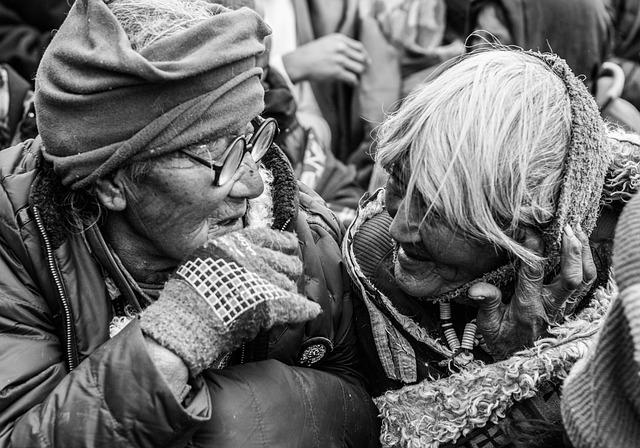
Concluding Remarks
Sudan’s decision to recall its ambassador from Kenya underscores the growing tensions between the two nations, particularly in light of reported efforts to establish a parallel government involving opposition groups. This diplomatic move reflects Sudan’s concerns over perceived interference in its internal affairs and the implications such actions could have on regional stability.As both countries navigate this complex situation, the international community will be watching closely to see how these developments unfold and what impact they will have on the broader geopolitical landscape in East Africa. Continued dialogue and understanding between Sudan and its neighbors will be crucial in preventing further escalation and fostering a more collaborative approach to addressing the challenges facing the region.


